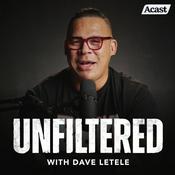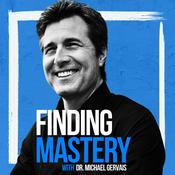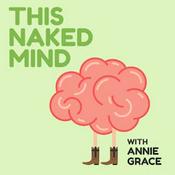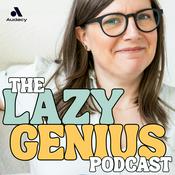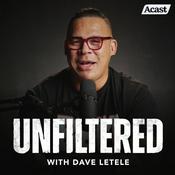184 episodes
- We know money answereth all things and that as long as we get money, keep money, and have more money then everything will be fine . . . of course this is completely and demonstrably wrong, and yet, the power of the Late Capitalist ethos reinforces this idea relentlessly as it prevents any other value from intervening in the process. However, if actually stop and ask - what is the source of my wealth, my wellbeing, my overflowing - well that is a potentially revolutionary question within the Late Capitalist ethos.
Sign-up for Wes’s PATREON community to get your questions answered by Wes! (Yes, Wes is very active on Patreon)
Plus, gain access to bonus lectures, peer discussions, additional course materials, and audio diaries from France. Only $2 / month.
https://www.patreon.com/WesCecil
Hosted on Acast. See acast.com/privacy for more information. - We arrive at perhaps the central theme Nietzsche has been building towards - the Will to Power. That life is not trying to survive but rather to thrive is the key argument he makes. He sees this as an extra-moral condition of existence because it is present in all living things - hence Beyond Good and Evil. That life force is motivating and shaping in every moment fundamentally alters the notion of a disinterested observer working within the framework of perfect reason to derive the Truth about the world.
Sign-up for Wes’s PATREON community to get your questions answered by Wes! (Yes, Wes is very active on Patreon)
Plus, gain access to bonus lectures, peer discussions, additional course materials and Wes’s audio diaries from France. Only $2 / month.
https://www.patreon.com/WesCecil
Hosted on Acast. See acast.com/privacy for more information. - Unsurprisingly, Late Capitalist outlooks have largely colonized our interactions with jobs. Both the structure of employment and the way we think about jobs has shifted dramatically over the last 40 years. Worse, our general cynicism about our current employment environment is itself a sign of how pervasive late capitalist outlooks have impacted even how we imagine our lives might be.
Sign-up for Wes’s PATREON to get your questions answered by Wes!
Plus, gain access to course materials, reading lists, peer discussions, bonus lectures, and Wes’s weekly diaries from France. Only $2 / month.
Hosted on Acast. See acast.com/privacy for more information. - Here Nietzsche critiques the whole notion that we ‘live in a simulation’ or that we live in a ‘hologram’ roughly 150 years before those concepts come into existence. In fact, however, he is really working against the Platonic tradition of perfect forms that haunted, and continues to haunt, the western concept of both the world and how we should, as ethical beings, respond to it.
Sign-up for Wes’s PATREON to get your questions answered by Wes! (Yes, he's very active on Patreon)
Plus, gain access to peer discussion groups, bonus lectures, additional course materials and Wes’s audio diaries from France. Only $2 / month.
https://www.patreon.com/WesCecil
Hosted on Acast. See acast.com/privacy for more information. - The structure of our contemporary societies promotes an increasingly powerful focus on isolated individuals as not just a model, but the model of a quality and ‘successful’ life. As isolated individuals we increasingly struggle to meet our basic needs by interacting with globalized and financialized systems that exploit us. The increase in loneliness, anxiety, suicide, and other mental health problems is a predictable and necessary outcome of an increasingly exploitative world in which individuals are pitted against corporations.
Sign-up for Wes’s PATREON to get your questions answered by Wes!
Plus, gain access to course materials, reading lists, peer discussions, bonus lectures, and Wes’s weekly diaries from France. Only $2 / month.
Hosted on Acast. See acast.com/privacy for more information.
More Education podcasts
Trending Education podcasts
About The Wes Cecil Podcast
My lectures are dedicated to making Philosophy in particular and the world of ideas in general available to everyone. My exploration of topics and thinkers is designed to provide a foundation for listeners to engage in further reading and thought and develop their own conceptions of the topics I introduce. I have PhD in Literature and Philosophy and was a college professor for over 20 years. I am working to remove the barriers that prevent many from experiencing and understanding the lives and thoughts of some of the world's greatest thinkers. Hosted on Acast. See acast.com/privacy for more information.
Podcast websiteListen to The Wes Cecil Podcast, The Rich Roll Podcast and many other podcasts from around the world with the radio.net app
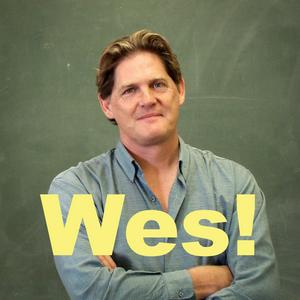
Get the free radio.net app
- Stations and podcasts to bookmark
- Stream via Wi-Fi or Bluetooth
- Supports Carplay & Android Auto
- Many other app features
Get the free radio.net app
- Stations and podcasts to bookmark
- Stream via Wi-Fi or Bluetooth
- Supports Carplay & Android Auto
- Many other app features


The Wes Cecil Podcast
Scan code,
download the app,
start listening.
download the app,
start listening.






